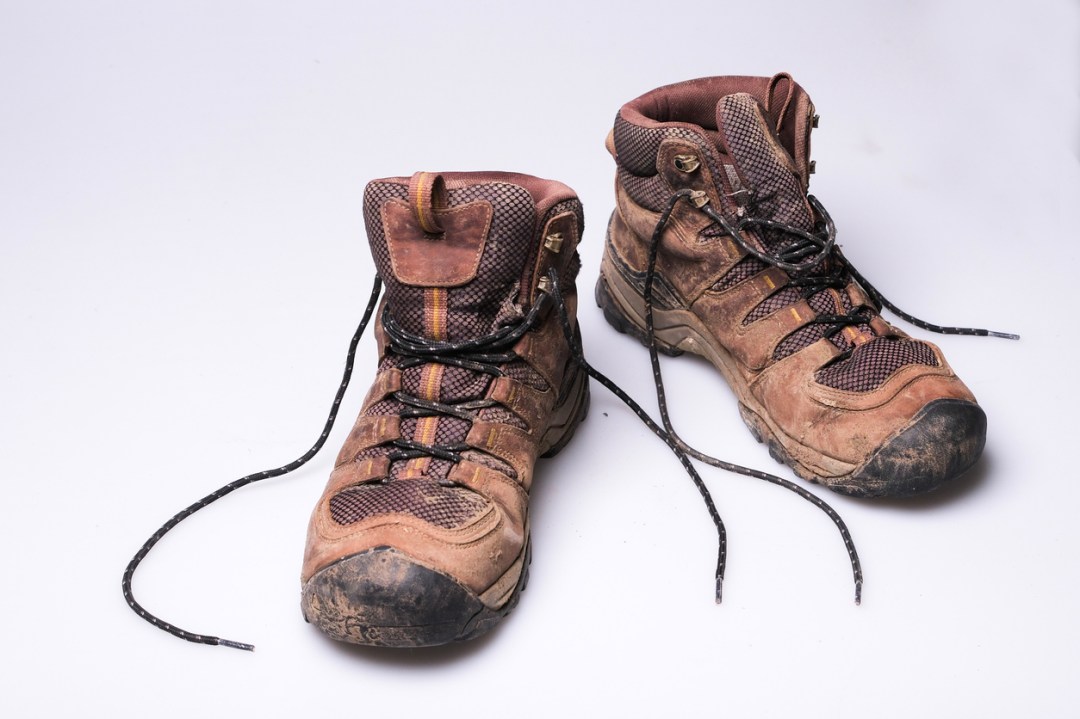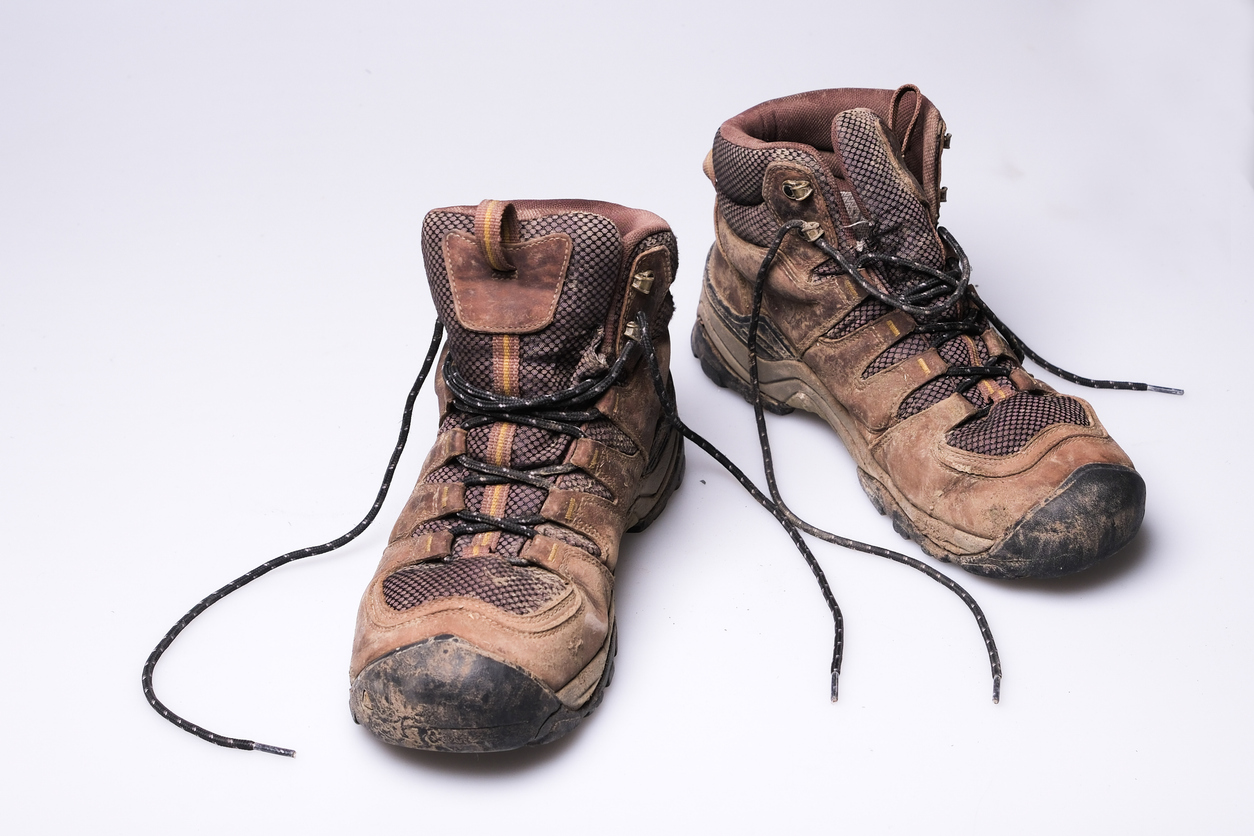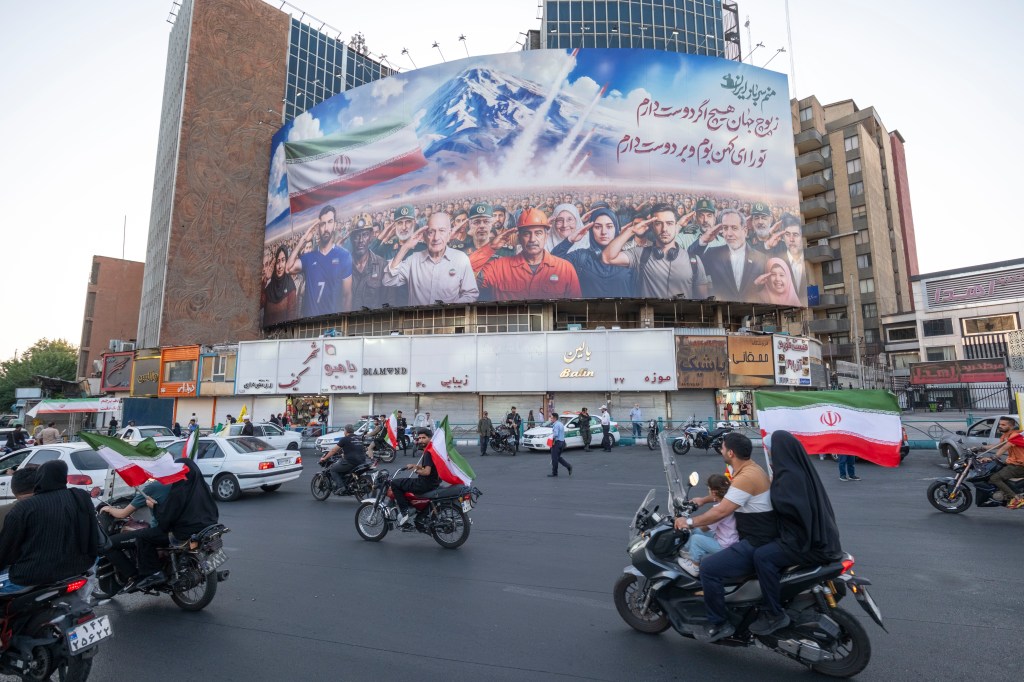It’s unlikely you’ll find a sorrier-looking pair of hiking boots than mine. As a result of my Camino addiction, the backs of my boots are literally crumbling, while the fronts have split open like a French baguette. They look like prime candidates for the hiking boot version of assisted dying – to put them out of their misery. But on my last pilgrimage, and in recognition of my complacency, I began treating my boots like royalty. I applied leather grease at the end of each day, packing them with newspaper to draw out the moisture. In short, I put those boots before all else.
They are lasting far longer than I thought possible. These boots got me thinking about my recent experiences of palliative care: three cases in as many months at the start of the year. One involving a relative, one a close family friend, and the last a Texan cowboy I came to know in Austin.
I was with my bed-ridden relative – who had lost more than half her body weight, having not eaten anything for six weeks – and her husband. There I witnessed the highest form of love – what the Greeks and C.S. Lewis described as agape, superior to all else. Watching palliative care left me contemplating the strange contradiction in these dreadful situations: when someone endures an early death, there is a mysterious alchemy within the relationships of those involved.
Because of the efforts of my relative’s husband and a helping friend – a palliative care nurse – my relative looked herself. Her hair was done, her nails manicured; she had always been a colourful dresser – so I recognised her for who she still was, despite the ravages of illness.
They had set up her bed in the sitting room, so she was surrounded by the Christmas tree and decorations as she watched Strictly Come Dancing. She was so clearly in a loving home – what the writer Rod Dreher calls ‘a haven in a heartless world’ – and all I can say is what a difference that made to everyone involved.
During that final visit, as her husband fussed over her, continually asking what she needed, if he could do anything more, I had to turn my head away – so intimate and intense was the relationship between them. I suspect it was all the more striking for the contrast it made with what we usually see in our world of smartphones and hard-set faces.
Similarly, through the daughter of an old family friend, I heard how ‘beautiful’ his last two weeks were. My friend, her sister and mother tended to the fading warrior – as a young British Army officer he served in Oman during the 1970s – through all the hardship and heartbreak. But it’s the beauty that stayed with her.
You can get another pair of hiking boots easily enough – but our friends and loved ones are unique
The partner of my Texan cowboy friend described how, after months of fighting and chemotherapy, she just ‘knew’ one night that the end was near. She read out a special ‘blessing’ she had been saving. Then, after setting aside the book, she held that cowboy as his life drifted away – and, her intuition correct, he ‘took his last breaths a few moments later’ in her embrace.
How do you sum all that up? I can’t even begin to convey it. Perhaps it’s something like the camaraderie I witnessed in the army in Iraq and Afghanistan – and which is one of the reasons so many veterans struggle after leaving the army. It sounds unbelievable given we’re discussing war, but the civilian realm can be so brutally cold and heartless by comparison.
Pope Francis – who gave a potent demonstration of not giving up on life – spoke admirably about the importance of recognising human dignity, and how our high-tech, disposable, modern societies trample on the sanctity of life. He spoke of the ‘distorted view of the person’ that ‘fosters an individualistic and aggressive throw-away culture, which transforms the human being into a consumer good’. He regularly warns how this attitude targets the youngest – the unborn – and the oldest. I wonder if those who campaign for ‘assisted dying’ have seriously considered this.
Death is the most difficult thing any of us has to deal with. It’s easy to think you’d do the right thing if you’ve never been tested. But I pray I would never let my loved ones be put down by the state, no matter how inconvenient others might find them. Primarily because of – I hope – love.
We already have ‘assisted dying’: it’s what I saw and had described to me. Palliative care is assisted (caring for the) dying. What Esther Rantzen, her fellow campaigners, and media such as the Guardian are pushing is ‘assisted suicide’ – the second horn of the dystopian pincer movement, with abortion already in place to end life at its beginning.
You can get another pair of hiking boots easily enough – but our friends and loved ones are unique. We only have them this one time. They will be taken away from us, just as we will be taken from those who survive us. Keep applying that leather grease to your loved ones, no matter what.








Comments